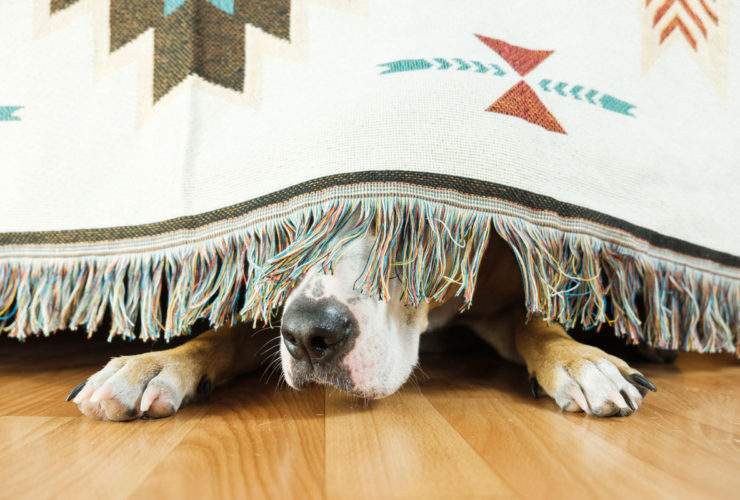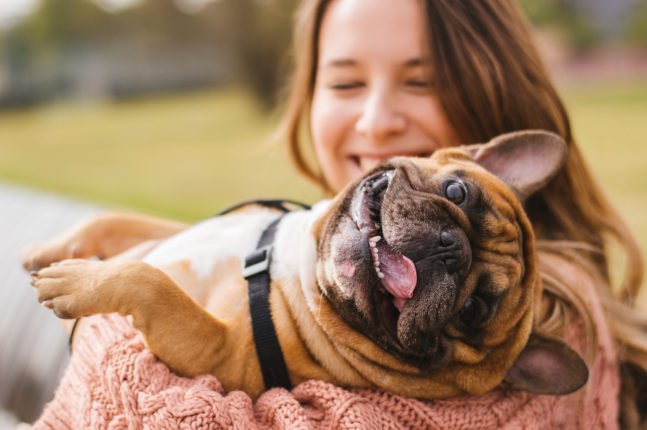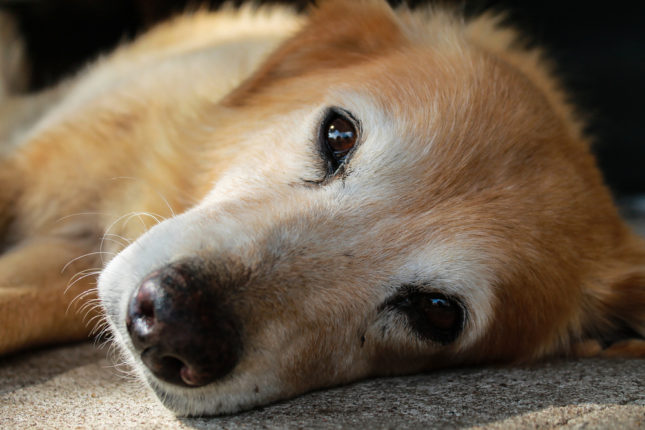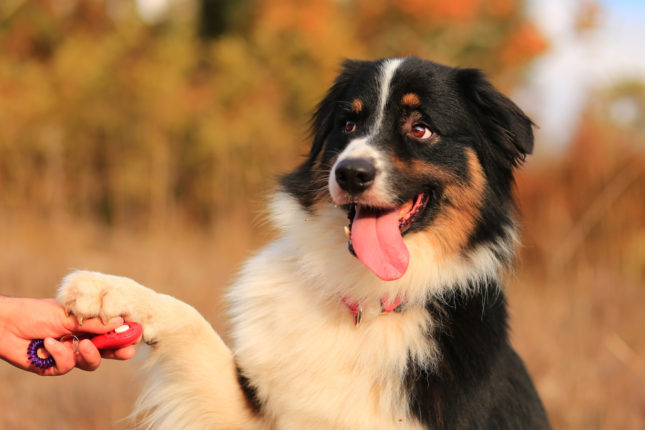
Does My Dog Suffer from Anxiety?
May is Mental Health Awareness Month, and at Eastwaye Veterinary Clinic, we’re using the opportunity to inform the dog-lovers of Goldsboro about the signs, symptoms, and solutions for dog anxiety.
Does your pup cower at loud noises, become destructive when left alone, or fear certain places or people? If so, it’s possible your pet has anxiety. Read on to learn more about canine anxiety and what you can do to ease your pet’s worries.


Types of Canine Anxiety
Anxiety refers to a few concerns with nuanced differences that dogs sometimes experience, including:
- Fear is the nervous system’s response to a perceived threat.
- Anxiety is the anticipation of a frightening event based on past experiences.
- Phobias are irrational fears that cause anxiety.
Each of these concerns is related to a dog’s instinctual need to feel safe.
Signs of Canine Anxiety
Dogs communicate feelings of anxiety with body language and behavior.
- Vocalization – Anxious dogs often bark excessively, growl, moan, whimper, whine, or howl.
- Destruction – Dogs experiencing anxiety might claw, dig, or bite at the doors and windows of your home. They could even injure themselves, trying to break out of a crate. Housebroken dogs with anxiety might also urinate or defecate inside.
- Pacing – Frightened dogs seem restless and have a difficult time settling. They’ll sit and then jump up right away, constantly pacing around the home or yard.
- Depression – Anxious dogs might experience appetite loss or become disinterested in play and other members of the household (people and pets).
- Aggression – Scared dogs, even those who are normally gentle, might act out aggressively.
- Shaking, Drooling, and Yawning – These are all part of an anxious dog’s natural fear response.
Don’t disregard changes in your pet’s behavior. Behavior changes don’t indicate a “bad dog”; behavior changes indicate stress or illness.


Common Causes of Anxiety in Dogs
Dogs experience anxiety for a variety of reasons. They might fear a variety of stimuli, such as people wearing hats, bicycles, loud noises, or the feeling of a slippery floor. Other dogs suffer from separation anxiety when they’re left alone. Anxiety can also be a symptom of cognitive dysfunction syndrome in senior dogs.
How to Calm Your Dog’s Anxiety
Canine anxiety can usually be treated with a combination of training and learning to avoid anxiety-inducing situations. If necessary, medications can also be used. If your dog exhibits symptoms of anxiety, schedule a veterinary appointment right away. Our veterinarian will perform a physical examination and possibly other diagnostic tests to rule out other health concerns first.




